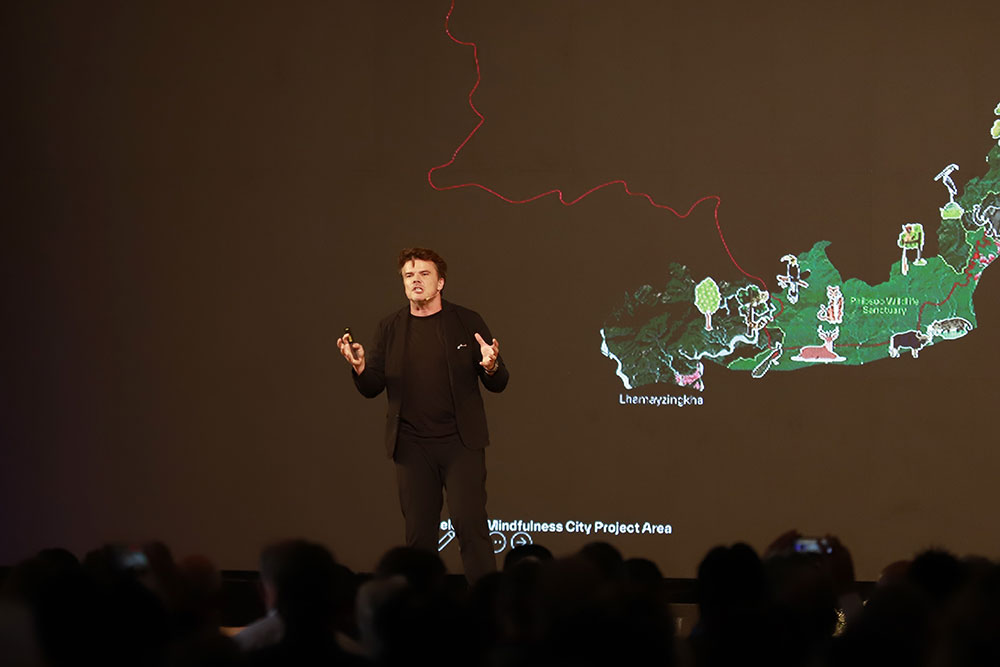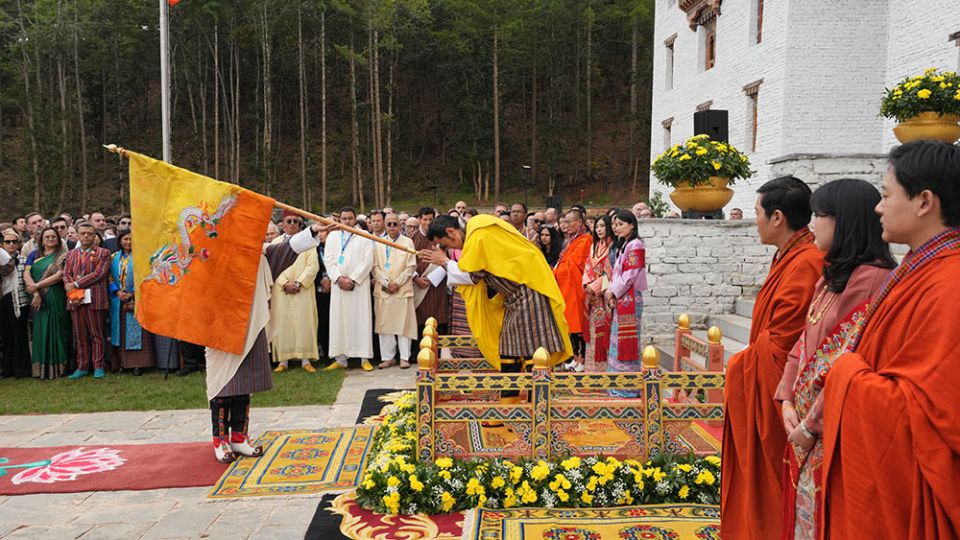October 3, 2024
THIMPHU – The Gelephu Mindfulness City (GMC) is poised to become a gateway between the world and South Asia, as well as the Vajrayana capital of the world.
This vision was shared by Bjarke Ingels, founding partner and creative director of BIG, during the unveiling of GMC’s master plan at the Bhutan Innovation Forum yesterday.
The GMC project in Bhutan is a pioneering initiative that aims to create an urban environment centered around mindfulness, sustainability, and innovation. By integrating traditional Bhutanese with cutting-edge design and technology, the GMC aspires to be a global exemplar of holistic urban development.

Bjarke Ingels, founding partner and creative director of BIG, during the unveiling of GMC’s master plan at the Bhutan Innovation Forum On Oct. 1. PHOTO: KUENSEL
Bjarke Ingels said the GMC will be powered by renewable energy, particularly hydropower, and will focus on seven core economic clusters: spirituality, health and wellness, education and knowledge, green energy and technology industries, finance, agritech and forestry, and airport economy.
The city will also feature a new international airport, a dry port for rail connectivity, and a mindfulness trail linking major cultural and spiritual destinations.
Bjarke Ingels said that Bhutan is incredibly green with 60 percent of its forest cover protected by the constitution, with nine national reserves linked by biological corridors for wildlife to migrate freely between the different regions.
He added that the country is also incredibly clean as the river that flows through the landscape nourishes agriculture and is converted into renewable energy.
Bhutan is also a happy country with collective communal happiness ingrained into the culture of Vajrayana Buddhism into the parameters of Gross National Happiness, Bjarke Ingels said, adding that the country has a safe political system.
“The challenge was to imagine a new city where we would not only plan the physical aspects of the city but the entire ecosystem including the administerial framework which would be tailor-made for the city, the legal framework based on Singapore-law, and the financial framework based on Abu Dhabi global market,” he added.
Based on the nine measures of GNH and fundamental Vajrayana Buddhist principles, the design for mindfulness city includes respect for the natural environment, increased job opportunities, provide mixed income housing, ensure accessible education, support healthy lifestyle, foster spirituality, strengthen communities, celebrate local traditions, and respond to society needs.
“With GMC, Bhutan will become the Vajrayana capital of the world,” Bjarke Ingels said.
He added that a city would be a special administrative region that would be attractive for businesses, foreign investments, and retain local talents.
In the highlands, the city will have longevity centers like spiritual resorts, Vajrayana Buddhist centers in the form of bridges, and meditation schools. Little lower land, there will be an agritech and forestry hub, among others and low land will have the city with 6-8 storeyed buildings constructed with locally sourced bamboo, timber, bricks, river rocks.
He added that the mindfulness trail, where one can hike basically on pilgrimage, will connect all major cultures and spiritual destinations in Bhutan and public spaces will be a place to learn something, sharing knowledge, wisdom and spiritual practice.
“The GMC will be a futuristic city that feels locally anchored, old and new fits together,” Bjarke Ingels said.
He added that the completion of the new international airport will directly connect flights in four continents. “In the first phase, it will cater 1.3 million passengers, and 5.5 million passengers in the phase-II, making it a veritable hub in the region.”
Bjarke Ingels said that Bhutan at the center of the region of four billion people, half of the population of the earth, will become a gateway between the world and South Asia.


